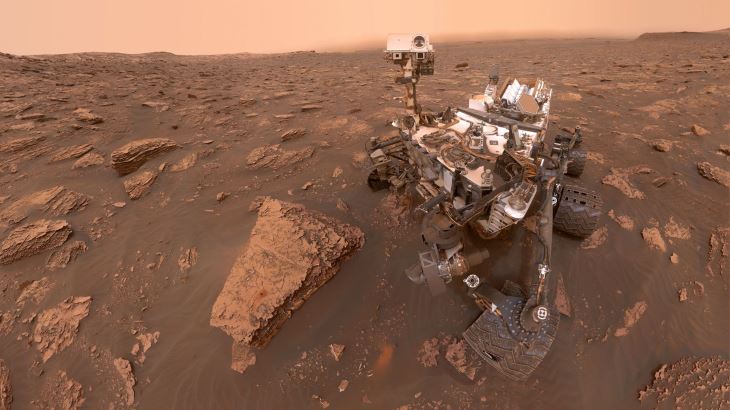
NASA's Curiosity rover on Mars, which the new projects might help astronauts travel to in future (Image: NASA-JPL-Caltech-MSSSS)
Bangor University in Wales will develop a nuclear thermal fuel system to support deep space exploration with funding provided by the UK Space Agency. It is one of eight projects receiving a total of GBP1.6 million (USD1.9 million) in funding through the agency’s Enabling Space Exploration fund.
Bangor University will receive GBP200,000 to develop new nuclear power processes for propulsion.
“Without stable nuclear fuel systems, deep space missions would not be successful,” the UK Space Agency said. “Additive manufacturing presents a state-of-the-art demonstration technique for nuclear-based fuels for space propulsion. The process allows the development and manufacture of various fuel configurations and designs that cannot be easily realised by conventional manufacturing methods.
“This project will demonstrate the additive manufacturing of metallic and ceramic zirconium-containing nuclear fuels and assess their performance.”
Another project receiving funding is creating remote equipment that scientists can use to run experiments on biological models in deep space from Earth, enabling them to better understand the impact of space on human health and begin designing medical treatments for astronauts.
The UK Space Agency said the selected projects “could revolutionise our ability to journey deeper into space – and even travel to Mars – safely and efficiently, using remote technologies and supplies found in space to sustain astronauts and spacecraft”.
“Space is the ultimate frontier, laboratory and technology testbed,” said Minister of State with responsibility for Space at the new Department of Science, Innovation and Technology, George Freeman. “The UK’s long history of leadership in deep space science and exploration is key to both understanding our solar system and origins of life, and creating opportunities for our high growth SpaceTech sector.
“Today’s funding is part of the government’s strategy to use our GBP5 billion investment in space science and technology to grow our GBP16.5 billion commercial space sector to create the businesses, jobs and opportunities of tomorrow, and the space clusters from Cornwall to Scotland.”
The UK Space Agency said: “Supporting innovative technologies enables UK organisations to take part in major exploration missions with international partners.”
“This is an incredibly exciting time for the space exploration sector, and I look forward to seeing how far the results of these projects will reach,” the agency’s CEO, Paul Bate, added.
Subscribe to AM Chronicle Newsletter to stay connected: https://bit.ly/3fBZ1mP
Follow us on LinkedIn: https://bit.ly/3IjhrFq
Visit for more interesting content on additive manufacturing: https://amchronicle.com
Building on their established successes in India and the USA, EOS and Phillips Machine Tools…
CPAC, a subsidiary of SCG, has entered into a significant partnership with SAMSUNG E&A to…
A research team from Graz University of Technology (TU Graz) in Austria has introduced two…
Aircraft maintenance plays a critical role in today's aviation industry, especially given the current challenges…
Calum Stewart Calum Stewart, a leading figure at SPEE3D, has been at the forefront of…
The Vice President of Rolf Mack at KraussMaffei talks about the future vision of Additive…
This website uses cookies.